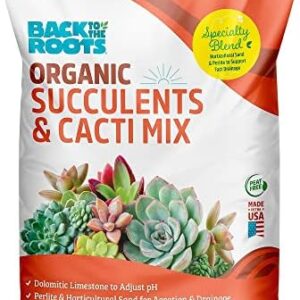Organic vegetable gardening has become increasingly popular in recent years as people are becoming more conscious of the food they eat and how it is grown. Whether you are a seasoned gardener or just starting out, there are many benefits to growing your own organic vegetables. Not only do you have control over what goes into your food, but you can also save money and reduce your environmental impact.
If you are new to organic vegetable gardening, it may seem overwhelming at first. But with some basic knowledge and a little bit of patience, you can be on your way to growing your own fresh, delicious produce in no time.
To begin, it’s important to choose a good location for your organic vegetable garden. Most vegetables require at least six hours of direct sunlight per day, so make sure to pick a spot that gets plenty of sun. You’ll also want to ensure that your garden has good drainage to prevent water from pooling around your plants.
Next, you’ll need to prepare the soil for your garden. Organic gardening relies on healthy soil to produce healthy plants, so it’s important to enrich your soil with organic matter such as compost or well-rotted manure. This will help improve the soil structure, provide important nutrients for your plants, and encourage beneficial microorganisms to thrive.
Once your soil is prepared, it’s time to choose which vegetables you want to grow. When selecting your crops, consider your climate, the amount of space you have, and your personal preferences. Some easy-to-grow vegetables for beginners include tomatoes, cucumbers, zucchini, and lettuce.
When planting your vegetables, be sure to follow spacing guidelines to ensure that your plants have enough room to grow. Crowded plants are more susceptible to disease and pests, so it’s important to give them space to thrive. It’s also a good idea to rotate your crops each year to prevent soil depletion and reduce the risk of pests and diseases.
As your vegetables begin to grow, it’s important to monitor their progress and provide them with the care they need. Regular watering is essential, especially during dry periods, and mulching can help retain moisture in the soil and suppress weeds. You’ll also want to keep an eye out for pests and diseases and take appropriate measures to protect your plants.
One of the key principles of organic gardening is to avoid the use of synthetic pesticides and fertilizers. Instead, consider natural alternatives such as companion planting, which involves planting certain crops together to deter pests, or using organic pest control methods like neem oil or insecticidal soap.
Harvesting your vegetables at the right time is crucial to ensure that they are at their peak flavor and nutritional value. Different vegetables have different harvesting requirements, so be sure to research the best time to pick each crop. And don’t forget to enjoy the fruits of your labor by using your freshly harvested produce in delicious meals and recipes.
Overall, organic vegetable gardening is a rewarding and fulfilling endeavor that allows you to connect with nature, produce your own food, and promote a healthy lifestyle. By following these basic principles and guidelines, you can create a thriving organic vegetable garden that will provide you with fresh, nutritious produce for years to come. So roll up your sleeves, dig in the dirt, and start growing your own organic vegetables today.






